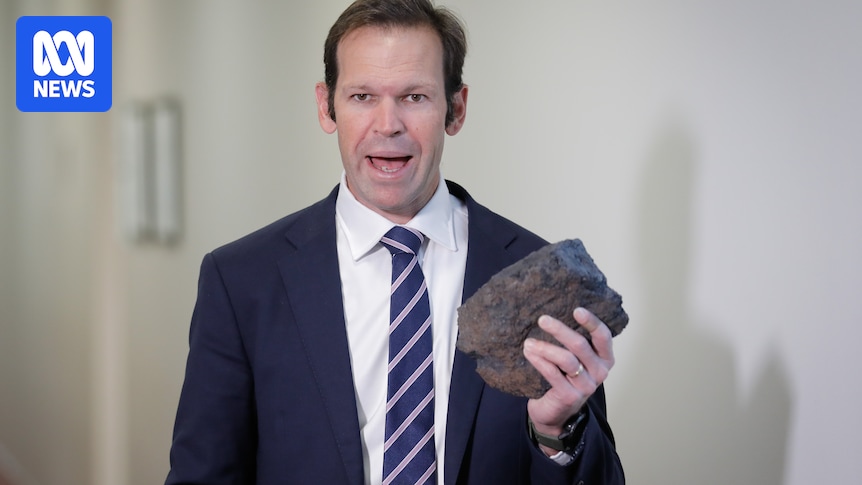
Details of a report expected to urge the Nationals to abandon their support for net zero emissions by 2050 will be presented to the party on Monday. However, the review, led by Nationals deputy leader Matt Canavan, has not included economic modelling of the costs associated with such a decision.
Senator Canavan, known for his opposition to net zero targets, conducted the review alongside Senate colleague Ross Cadell. Speaking on the ABC’s Insiders program on Sunday, Canavan revealed he would present the findings to his colleagues as parliament resumes. He indicated that discussions about the party’s stance on net zero emissions are likely to continue, suggesting a resolution may take time.
Ongoing Discussions and Economic Modelling
Canavan emphasized that while he would present his work, there is a possibility that further deliberation would be required. “I’ll present work as I have been doing the last few weeks, but you probably have bosses or had bosses over your career, sometimes when you present something, they tell you: that’s not good enough, go back and do some more work,” he stated.
He also confirmed that the review had not yet undertaken economic modelling to estimate the cost of abandoning the net zero target. Instead, Canavan pointed to the costs of pursuing the target and the “benefit of avoiding those costs.” In a fiery exchange, he remarked,
“It’s very clear that the cost of not doing something is avoiding the cost of doing it. That’s pretty common-sense.”
Political Implications and Party Dynamics
The debate over net zero emissions has been a longstanding issue within the Coalition, previously causing a brief split between the Nationals and the Liberals after the federal election in May. Should the Nationals decide to abandon the net zero commitment, it could potentially strain their partnership with the Liberals once again.
Meanwhile, the Nationals senator expressed support for fellow net zero critic Barnaby Joyce, who recently announced he would not recontest his seat of New England at the next election. Joyce’s relationship with the party’s leader has reportedly deteriorated, raising questions about his participation in the upcoming party room meeting.
Joyce’s Future and Party Cohesion
Senator Canavan expressed hope that Joyce would remain involved with the Nationals, stating, “And I know lots of people have reached out to him in the last few weeks and as I say, I’d love to keep him part of the team.” Using a sporting analogy, Canavan suggested that even if Joyce considers himself a “free agent,” it would be beneficial to keep him “on the field.”
Canavan also noted that support for net zero is waning, a trend he believes Joyce has influenced.
“Support for net zero is dropping off a cliff,” he said. “And I think that Barnaby played a role in that.”
Context and Historical Parallels
Climate policy has historically been a contentious issue in Australian politics, with the Coalition often divided over the best approach. The current debate within the Nationals reflects broader global discussions on the economic and environmental impacts of climate commitments. Critics of net zero targets argue that they impose significant economic burdens, particularly on industries reliant on fossil fuels, while proponents highlight the long-term benefits of mitigating climate change.
As the Nationals prepare to deliberate on their position, the absence of economic modelling in the review raises questions about the basis for any potential policy shift. Experts suggest that comprehensive economic analysis is crucial to understanding the full implications of abandoning net zero targets, both economically and environmentally.
Looking Ahead
The outcome of the Nationals’ discussions could have significant implications for Australia’s climate policy and its political landscape. As debates continue, the party’s decision will likely influence its relationship with the Liberals and its standing with voters concerned about climate change and economic stability.
The coming weeks are expected to bring further developments as the Nationals navigate these complex issues, balancing internal dynamics with broader national and global considerations.





